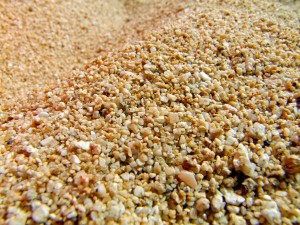
All humans are human. As much as we are different, we are all the same. As much as we are the same, we are all different.
I believe sometimes we like to feel we are the other, completely different from everyone else somehow. Well, sometimes we are different. Sometimes we aren’t different. But, never completely different either way.
Each of us have our own set of unique natural talents and abilities, our own likes and dislikes, our own way of looking at things. So, we say we are unique. Do you believe this is true, we are all unique?
Okay, lets perform an experiment. You can try this at home. Sit down and with your right leg and foot extended, move your leg in a circular motion clockwise and at the same time take your right hand and draw the number six in the air with your index finger. You will notice your leg or foot changed direction.
Without exception, the exact same thing will happen to every human on the planet, every time it is tried. You can’t practice or ever hope to learn to do otherwise. All of our brains are fundamentally hard wired pretty much the same. I could give a hundred more examples of how this is true.
Yet, we are all different. Sure, the sand on a beach is all sand. All of the sand looks the same. It all feels the same. It all behaves the same. But look at each grain under a microscope and each grain will look distinctly different, because each grain is distinctly different.
In fact, some of what we call sand isn’t composed of pulverized rock particles at all. Under magnification, some of what we refer to as sand are actually particles of reef, shells, sharks teeth, or the silica frustules of sea creatures called diatoms.
Even so, no two particles of rock sand are exactly the same. If you had an eternity to closely inspect every sand particle in the world, in the universe, you would find no two alike in size, shape, composition or color.
Look at any beach, though, and it all looks the same. Like sand. As much as sand looks different, it is all the same. As much as sand looks the same, it is all different.
Margaret Mead wrote – “Always remember that you are absolutely unique.
Just like everyone else.”
You may be just one of 7 billion people in this world but there is only one of you which puts you in the most exclusive club of all. Even in a world of seven billion.
Each of us has a unique set of natural talents and abilities which sets us apart from everyone else in the world. Apart from everyone who has come before us. Apart from everyone who will come after us. Some try to hide their uniqueness. Some choose not to celebrate their uniqueness. Why?
We are all here, all uniquely the same and different, for a reason. Do you know your reason for being?
It would be a monumental waste of universal energy to live and die without using those natural talents and abilities to the fullest. I believe we have a responsibility to use ourselves up, to burn as brightly as we can before our light goes out.
Just as we have navigated through the good times and bad times in life by the light of those around us, there are people out there who need your light to guide them, to teach them, to inspire them.
As much as we are the same, we are all different. As much as we are different, we are all the same. All humans are human. This is the basis of our interconnectedness.
Do you feel unique in the world? Do you celebrate your uniqueness using your own set of natural talents and abilities?
Clark, I really enjoyed reading this post. I really enjoyed your analogy regarding sand. Each grain of sand, like humans, are unique and beautiful. I am reminded of a quote by Walt Disney who stated: “The more you like yourself, the less you are like anyone else, which makes you unique”.
Thank you Stacy! Great quote by Walt Disney and very true.
Fascinating facts regarding each grain of sand, and encouraging words to live our lives to the full potential of what we are and indeed can be! I’m reminded of Psalm 139 especially verses 17 and 18 which mention the sand, but also how wonderfully (uniquely) each one of us has been made (verses 13 -16). Thank you for this really interesting article on To see a world in a grain of sand.
Thanks Julian! I appreciate your comments.